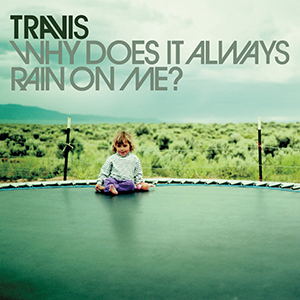
The UK Rock & Metal Singles Chart is a record chart which ranks the best-selling rock and heavy metal songs in the United Kingdom. Compiled and published by the Official Charts Company, the data is based on each track's weekly physical sales, digital downloads and streams. [1] In 1999, there were 14 singles that topped the 52 published charts. The first number-one of the year was Resurrection , an extended play by American industrial metal band Fear Factory, which spent the last two weeks of 1998 and the first week of 1999 at number one. [2] [3] [4] The final number-one single of the year was "She's Got Issues" by American pop punk band The Offspring. [5]
The UK Rock & Metal Singles Chart and UK Rock & Metal Albums Chart are record charts compiled in the United Kingdom by the Official Charts Company (OCC) to determine the 40 most popular singles and albums in the rock and heavy metal genres. The two charts are compiled by the OCC from digital downloads, physical record sales and audio streams in UK retail outlets. The charts have been published on the official OCC website since 1994 and also appear on BBC Radio 1's website.
A record chart, also called a music chart, is a ranking of recorded music according to certain criteria during a given period of time. Although in the UK, the official chart has only included physical sales and paid-for streaming, many different criteria are used in worldwide charts, including record sales, the amount of radio airplay, and since the popularity of online consumption of music, the number of downloads and the amount of streaming activity.
Rock music is a broad genre of popular music that originated as "rock and roll" in the United States in the early 1950s, and developed into a range of different styles in the 1960s and later, particularly in the United Kingdom and in the United States. It has its roots in 1940s and 1950s rock and roll, a style which drew heavily on the genres of blues, rhythm and blues, and from country music. Rock music also drew strongly on a number of other genres such as electric blues and folk, and incorporated influences from jazz, classical and other musical styles. Musically, rock has centered on the electric guitar, usually as part of a rock group with electric bass, drums, and one or more singers. Usually, rock is song-based music usually with a 4/4 time signature using a verse–chorus form, but the genre has become extremely diverse. Like pop music, lyrics often stress romantic love but also address a wide variety of other themes that are frequently social or political.
Contents
The most successful song on the UK Rock & Metal Singles Chart in 1999 was "Why Don't You Get a Job?" by The Offspring, which spent a total of eleven weeks at number one. The band also topped the chart for four weeks with "She's Got Issues". "Why Does It Always Rain on Me?" by Travis spent ten weeks at number one, while "November Rain" by Guns N' Roses was number one for six weeks over two three-week spells. Def Leppard were number one for five weeks in 1999 with "Promises" (three weeks) and "Goodbye" (two weeks); Skunk Anansie's "Charlie Big Potato" and Rage Against the Machine's "Guerrilla Radio" spent four weeks each at number one; Bon Jovi's "Real Life" was number one for three weeks; and Metallica spent three weeks at number one with "The Unforgiven II" (one week) and "Whiskey in the Jar" (two weeks).

"Why Don't You Get a Job?" is a song by The Offspring. The song is the 11th track on The Offspring's fifth studio album Americana (1998) and was released as the second single from the album. The song also appears as the eighth track on the band's Greatest Hits album (2005). The single peaked within the top ten of the charts in many countries, including number 2 in the United Kingdom, Australia and Sweden.

"Why Does It Always Rain on Me?" is a song by Scottish band Travis, released as the third single from their second studio album, The Man Who. The song became the group's international breakthrough single, receiving recognition around the world. It was their first top-ten hit on the UK Singles Chart, peaking at number 10. The song also peaked at number 11 in Australia and achieved success in mainland Europe and North America.

Travis is a Scottish rock band formed in Glasgow in 1990, composed of Fran Healy, Dougie Payne, Andy Dunlop and Neil Primrose. The band's name comes from the Harry Dean Stanton character Travis Henderson from the film Paris, Texas. The band is widely claimed by the media as having paved the way for other bands such as Keane and Coldplay to go onto achieve worldwide success throughout the 2000s, particularly through the band's The Man Who (1999) album.





